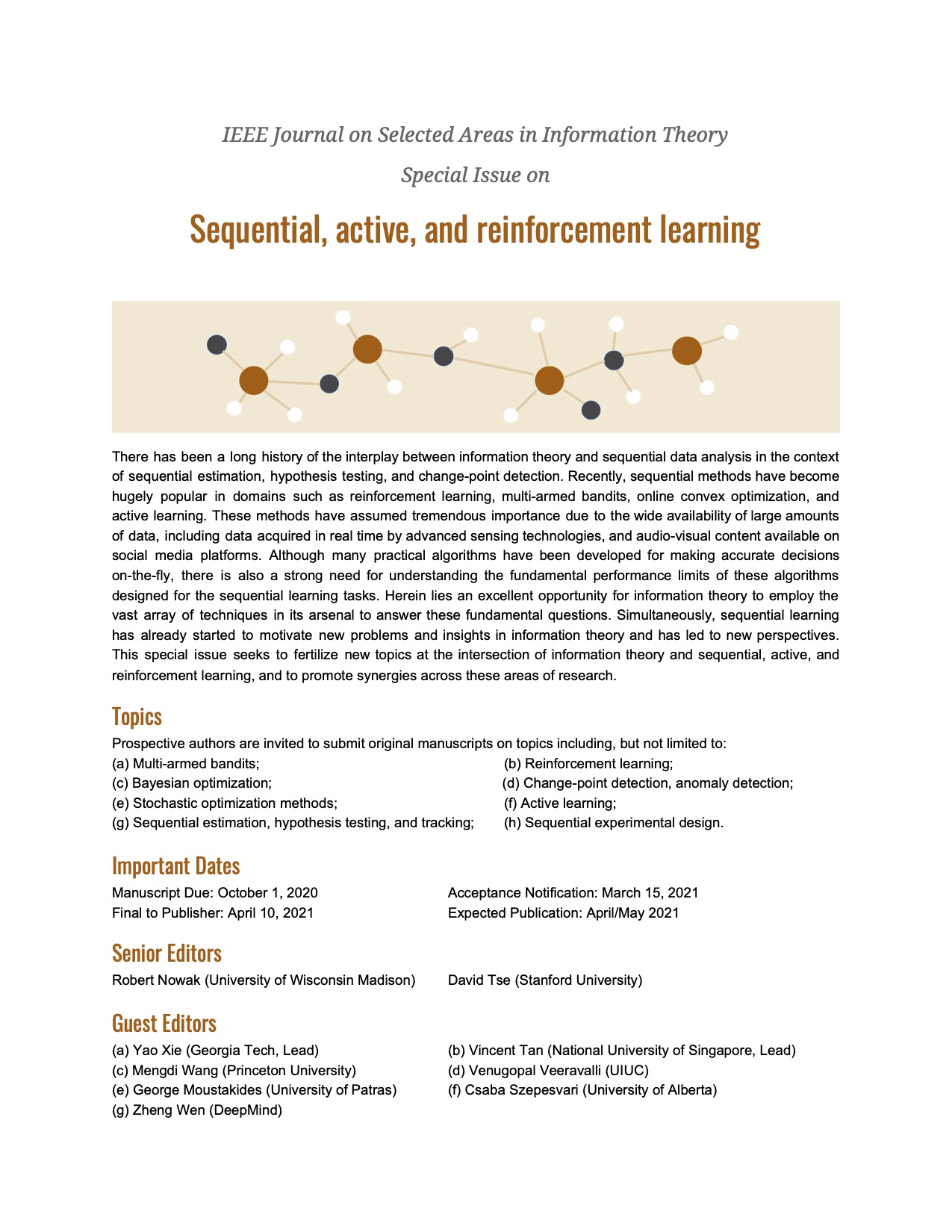
IEEE Journal on Selected Areas in Information Theory
Special Issue on
Sequential, active, and reinforcement learning
There has been a long history of the interplay between information theory and sequential data analysis in the context of sequential estimation, hypothesis testing, and change-point detection. Recently, sequential methods have become hugely popular in domains such as reinforcement learning, multi-armed bandits, online convex optimization, and active learning. These methods have assumed tremendous importance due to the wide availability of large amounts of data, including data acquired in real time by advanced sensing technologies, and audio-visual content available on social media platforms. Although many practical algorithms have been developed for making accurate decisions on-the-fly, there is also a strong need for understanding the fundamental performance limits of these algorithms designed for the sequential learning tasks. Herein lies an excellent opportunity for information theory to employ the vast array of techniques in its arsenal to answer these fundamental questions. Simultaneously, sequential learning has already started to motivate new problems and insights in information theory and has led to new perspectives. This special issue seeks to fertilize new topics at the intersection of information theory and sequential, active, and reinforcement learning, and to promote synergies across these areas of research.
Topics
Prospective authors are invited to submit original manuscripts on topics including, but not limited to:
(a) Multi-armed bandits; (b) Reinforcement learning;
(c) Bayesian optimization; (d) Change-point detection, anomaly detection;
(e) Stochastic optimization methods; (f) Active learning;
(g) Sequential estimation, hypothesis testing, and tracking; (h) Sequential experimental design.
Important Dates
Manuscript Due: October 1, 2020 Acceptance Notification: March 15, 2021
Final to Publisher: April 10, 2021 Expected Publication: April/May 2021
Senior Editors
Robert Nowak (University of Wisconsin Madison) David Tse (Stanford University)
Guest Editors
(a) Yao Xie (Georgia Tech, Lead) (b) Vincent Tan (National University of Singapore, Lead)
(c) Mengdi Wang (Princeton University) (d) Venugopal Veeravalli (UIUC)
(e) George Moustakides (University of Patras) (f) Csaba Szepesvari (University of Alberta)
(g) Zheng Wen (DeepMind)
